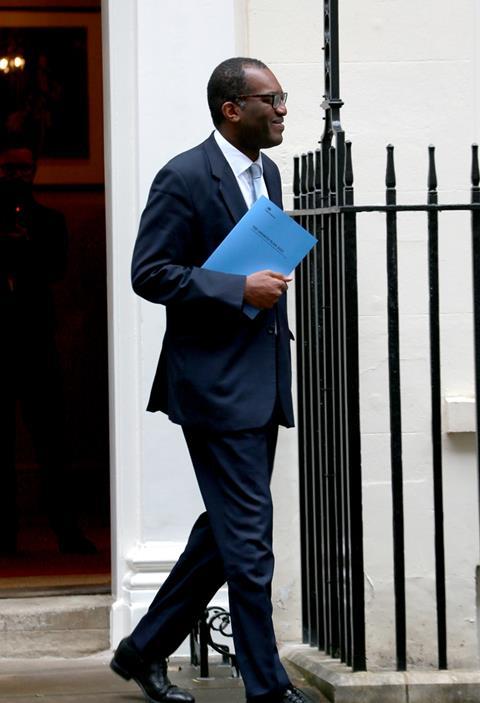Move aims to boost growth by simplifyng tax system
The government has scrapped controversial reforms to the tax status of self-employed workers in a move aimed at freeing up time and money for businesses.
The IR35 off-payroll tax rules for contractors will be repealed from 6 April next year, two years after they were first introduced in the private sector.
The decision was announced as part of new chancellor Kwasi Kwarteng’s first major economic intervention, which is focused on boosting growth by slashing taxes and regulation.
Treasury documents say that workers providing their services via an intermediary “will once again be responsible for determining their employment status and paying the appropriate amount of tax and National Insurance contributions.

“This will free up time and money for businesses that engage contractors, that could be put towards other priorities.”
It adds that the reforms will also minimise the risk that genuinely self-employed workers are impacted by the underlying off-payroll rules.
The introduction of IR35 in April 2021, delayed by a year because of the pandemic, was met with concern in the construction sector, which is heavily reliant on freelancers to provide technical expertise both on and off-site.
HMRC’s tools for assessing tax compliance were also criticised for being confusing and hard to use accurately.
In February, the National Audit Office said HMRC needed to make further improvements to the Check Employment Status for Tax (CEST) service.
Construction Products Association economics director Noble Francis said the repeal of the rules will help construction but criticised the timing of their introduction last year.
“The time and money wasted dealing with [IR35] in 2021, when contractors had to deal with materials availability and cost, rising PI insurance and reverse charge VAT, only for IR35 changes to be repealed, is staggering,” he said.
Dave Chaplin, chief executive of tax compliance firm IR35 Shield said contractors and businesses will be celebrating.
“These onerous reforms were never going to work and were flawed from the start…The new version of IR35 has simply served to pour glue on the economy and prevent growth.
“The chancellor has done the right thing and removed the unnecessary burden for firms of trying to solve a complex riddle every time they hire a worker.
“Today’s bold move by Kwasi Kwarteng may well have given the Conservatives a chance of winning the next general election,” he said.
Crawford Temple, chief executive of tax compliance consultant Professional Passport, said the implementation of IR35 had been a “car crash”.
More on the mini-budget
Kwarteng slashes stamp duty as he pledges to ‘get Britain building’
Housing chiefs want planning reform everywhere – not just in new zones
Industry criticises lack of support for affordable housing in mini-budget
Pressing ahead with the off-payroll legislation… was foolhardy as the government was building new legislation on fundamentally flawed original legislation as most experts highlighted at the time.
“The legislation opened the floodgates to disguised remuneration schemes, once again highlighted by experts, that have had a punitive impact on contractors’ pockets whilst the perpetrators of the schemes have financially flourished.
“Implementation of these new rules has cost companies millions of pounds so it is disappointing that the warnings were not heeded before pressing ahead.”
The rules were originally introduced as far back as 2000 but suffered widespread non-compliance, which was estimated to cost the Exchequer £440m in 2016-17.
This prompted the government to toughen the rules for the public sector in April 2017, but the NAO said in February this year that public bodies had routinely encountered errors when trying to use the CEST tool.



























No comments yet